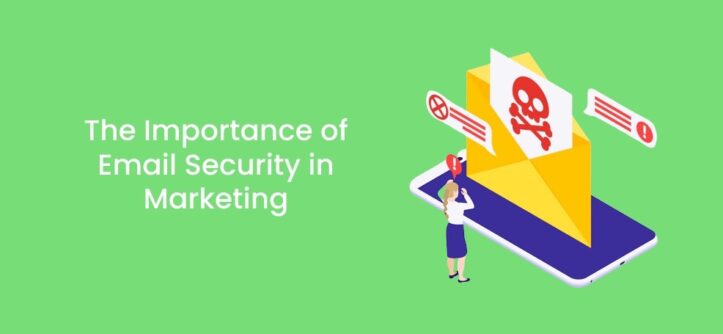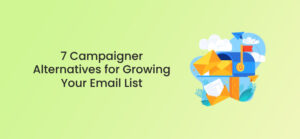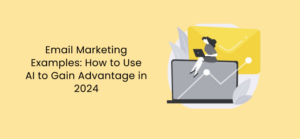Email security is a growing issue. When was the last time you read about a new email scam or phishing attack? Email scams climbed by 28% from February 2022 to March 2022 and 1,024% from April 2021 to March 2022.
Email security is something that businesses should consider when planning their marketing activities and trying to collect leads. Here’s why it’s important to protect your email system from external threats. We’ll discuss in detail why you need a comprehensive email security solution and how you can have one now.
What is Email Security?
Email security is about protecting your information from being compromised by hackers. It is an essential part of any successful inbound marketing strategy. The email security industry is growing rapidly as more businesses and consumers realize the importance of keeping their emails safe.
According to APWG’s Phishing Activity Trends Report, published in February 2022, Phishing attacks peaked in 2021 More than 300,000 attacks were reported in December, three times more than a year earlier.
Security solutions for email protect against phishing, malware, and spam attacks. They also protect against advanced threats like zero-day attacks, preventing hackers from accessing your data.
An email security solution aims to protect both you and your recipients from malicious activity while ensuring that legitimate messages aren’t blocked as spam or labeled phishing attempts.
Why is Email Security important in Email Marketing?
Email marketing is a great way to grow your email subscriber list and reach your customers, but it’s also a potential tool for cyber attackers to reach your customers.
As the world becomes increasingly digital, it is important to ensure that businesses are safeguarding their customers’ data and protecting their systems from potential breaches. With email being one of the most widely used forms of communication in the world, it is necessary to ensure that email security is taken seriously in order to protect the security and privacy of customers and their data.
But there are challenges that come with using email marketing: for example, how do you ensure that your recipients aren’t receiving spam?
Emails are the most common attack vector in phishing attacks, and they’re also used in ransomware attacks—which means that if you don’t take steps to secure your emails, you could end up losing valuable data or paying money to get it back.
That’s why email security is so important. It’s not just about protecting yourself from hackers; it’s about protecting your business from legal liability and brand damage if something goes wrong.
What are the Types of Email Threats?
Email threats can come in a variety of forms.
Security concerns rose at Microsoft’s commercial customer organizations during the COVID-19 crisis, according to Microsoft’s New Future of Work Report. According to the study, 80% of security experts have noticed an increase in security threats after moving to remote work. In this group of 80%, 62% report phishing attempts have grown more than any other kind of danger.
The most common email threats include:
Email Spoofing
To make an email appear to be coming from another address, a sender can use a fake email address, known as spoofing. Different technologies and practices are combined to accomplish this.
Transactional emails can be spoofed to look like they are coming from legitimate company addresses which can be very hard for victims to detect. Learning how to check if an email is fake or not is a crucial skill in protecting yourself from phishing scams and online fraud.
Email Phishing
A phishing attack typically steals credit card information and login credentials. Phishing scams are sent by text message or email. They trick you into clicking a link or opening an attachment to access your information.
This graph, taken from Google Safe Browsing, illustrates the sharp rise in the number of websites classified as hazardous between January 2016 and January 2021.
Source:tessian.com
Malware
The most common form of email threat is malware, which is software designed to damage or disrupt computers and computer networks.
The total number of malware attacks during the first half of 2022 was 2.8 billion. 5.4 billion malware attacks were discovered in 2021. In recent years, 2018 saw the highest number of malware attacks ever recorded, with 10.5 billion reported globally.
In most cases, it is installed without the user’s knowledge or consent through a social engineering scheme or by exploiting a vulnerability in an operating system or application. Malware may include viruses, worms, Trojan horses, and spyware.
Doxing
Doxing is a cybercrime involving gathering personal information about an individual for harassment, impersonation, or other malicious intent. Doxing often exposes private information (dox) about a person on the internet, typically with malicious intent.
The term “dox” comes from “docs” about files containing sensitive information about someone.
Business Email Compromise (BEC)
In this attack, scammers impersonate an executive and send out fake invoices or requests for wire transfers from their company’s account.
The IC3 monitored two BEC scam iterations in which fraudsters used cryptocurrency. A “second hop” transfer or a direct transfer to a cryptocurrency exchange (CE). In both cases, the victim is unaware that the money is being sent to be converted into cryptocurrency.
The scammer will often request that payments be made from personal accounts rather than corporate ones so that their theft cannot be detected immediately.
Unsolicited Spam Emails
Unsolicited spam emails (also called “junk mail” or “spam”) are unwanted messages that you receive through your email program. Spam can include advertisements for products, services, or other websites unrelated to your online activity. Cybercriminals sometimes use spam messages to spread malware and viruses to their victims’ computers.
Importance of Email Security in Marketing
According to a recent Enterprise Management Associates (EMA) study, 60% of leaks were caused by insiders. This is divided into:
- 20% of staff members accidentally disclose or share data;
- Additionally, 20% of employees steal information from the organization and receive payment for it
- 20% of employees are tricked into divulging information by phishing, malware, or social engineering.
Source: reyamitech.com
Here are some important benefits of using email security in marketing:
Protection Against Phishing Attacks
Phishing has become a serious threat to businesses today, especially those relying on email to communicate or get feedback from customers or partners.
Your computer can be infected with malware by clicking on links in phishing emails. Email security solutions have become a must-have for businesses because they help you prevent such attacks by detecting them at the gateway before they reach your users’ inboxes.
Minimizing Incidents Caused by Employee Mistakes
Employees make mistakes all the time, but when it comes to email security, they can cause major damage if they accidentally send confidential data to someone who shouldn’t see it or click on a malicious link in an email attachment.
The right solution will ensure that employees refrain from accidentally exposing sensitive information to unauthorized users.
Enhanced Security Posture
Email security safeguards against such threats and helps enhance the overall security posture of your organization. It protects your organization from hackers and phishing attacks by scanning all incoming and outgoing emails for malware, viruses, and spam.
Prevents Business Email Compromise
Email security solutions are designed to detect and block any suspicious activity from taking place on your system. If you get infected with a virus or ransomware, this software will prevent it from spreading further in the network.
This helps you save thousands of dollars that would otherwise have been spent on recovery efforts by IT professionals.
Safeguards Your Valuable Data
Email security solutions also ensure that all your data remains safe and secure. They scan for viruses and other malware threats before they infect your system, which helps you avoid losing valuable information such as confidential client data, financial records, customer data, or plans and strategies for your new marketing campaign.
Securing Email Backups
When you have an effective email security solution, you can rest assured that your valuable data is safe from hackers. The solution will protect your data wherever it resides — on-premises or in the cloud — by encrypting all your emails and attachments before they are backed up.
This ensures that even if an unauthorized person gains access to your backups, they would be unable to read or alter your information because it would be encrypted.
Protection of Confidential Data
Email security allows you to protect confidential data from hackers who may attempt to steal that information from your database or website. Email security can help prevent spamming, malware, and other cyber attacks that could put your data at risk.
Avoid Business Risks and Remain Compliant
Email security can help reduce your business risks by ensuring that no confidential information is sent out accidentally or through malicious intent. Depending on the size of your company, this could mean avoiding fines or legal action due to non-compliance with regulations like GDPR.
It can also help prevent reputation damage caused by sending out messages with viruses or malware attached, which could result in lost customers and revenue loss over time if they take their business elsewhere because they are worried about getting viruses from your emails.
Email Security Policies: What do they include?
An email security policy defines how your organization handles confidential information, such as customer data, employee records, and financial statements. The policy helps protect against cyber threats such as phishing scams, malware infections, and data breaches caused by hackers.
Email is a common vector for cyberattacks because it’s easy to spoof sender identities and send malware-laden messages without detection. Email security is an essential part of any content marketing strategy as it ensures that sensitive data and customer information are kept safe. An email security policy includes the following elements:
- Procedures for handling confidential information and how to protect it.
- A list of approved software programs can be used to access work emails. These include antivirus and antispam tools and encryption programs that prevent sensitive data from being intercepted or viewed by unauthorized individuals.
- Threat response strategies for various cyber threats, including phishing attacks and malware infections.
- Training requirements for employees who handle sensitive data on behalf of the company.
How to safeguard against email threats
The way we work and live has been changed by the internet. Additionally, it has given hackers the chance to steal important data from people and businesses.
Given that email is one of the most popular communication tools, it’s critical to understand what you can do to safeguard your business against email risks.
The following advice will assist you in protecting yourself from email threats:
Protection against phishing and spoofing
The best way to protect against phishing and spoofing is to use DMARC.
DMARC (Domain-based Message Authentication, Reporting & Conformance) provides a way for email receivers to check that messages purporting to be from you come from you and gives you information on how those messages perform.
To catapult your email marketing efforts after configuring DMARC, you can implement BIMI to give a professional look and feel to your emails by appending your unique brand logo to outgoing commercial emails.
Use strong passwords
To avoid this, use strong passwords that combine uppercase and lowercase letters, digits, and special characters.
For each account, use a separate password, and change it frequently (every 90 days, at the very least). Additionally, you want to implement two-factor authentication for any accounts that do so.
Backup critical data frequently
You must back up all critical data frequently if your organization uses email. Personal information, bank account details, passwords, and other sensitive information are included in this category.
If a hacker gains access to this data, they could use it to compromise your accounts or pass on this information to others who may misuse it.
Educate and train employees
Ensure all employees know the risks associated with using email and how to protect themselves against them. For example, tell them not to open suspicious emails or click on links in those emails without verifying their authenticity first and ensure they use strong passwords which aren’t easily guessable or available in public records such as social media profiles or websites like “123-reg.”
Check for email authentication
Email authentication is a set of technologies that helps prevent spoofing and phishing attacks. It uses digital signatures to verify the sender’s identity and make sure they are who they say they are.
Without authentication, there is no way of knowing whether an email came from someone you know. Fortunately, this technology has been around for years, and most modern mail servers support it.
Run periodic email security audits
Malicious attacks such as ransomware and phishing often use email as an attack vector. It is critical to run regular checks on your network to ensure all your systems are secure.
Use 2-factor authentication
Using two-factor authentication, users must verify their identity with something other than a password. Whenever someone tries to log into your account from a different device or location, 2FA requires them to enter a one-time code generated on their smartphone or emailed to them.
This ensures that even if someone gets hold of your password (which happens all too often), they cannot access your account without the second factor.
Scan and inspect emails in your network
Don’t open any attachments or links unless they come from someone you trust or a company you know has sent them. Even if an email looks legitimate, it could contain malware that installs itself on your device without your knowledge.
If you don’t recognize an email sender’s address or see it on any lists of senders you trust, don’t open the message — even if it contains a word file attachment or looks like an invoice from a vendor supporting your business needs.
Final Words
Regarding email marketing, there’s no such thing as being too careful. Always ensure that you’re sticking to best practices regarding security, and try not to take shortcuts. Your customers count on you to keep their data safe, and your brand depends on a good reputation.
Author’s bio: PowerDMARC is a full-stack email authentication SaaS platform that helps organizations combat phishing, spoofing, impersonation, ransomware, and other email-based attacks. With a team of DMARC experts, they have helped 1000+ customers stop hackers from sending emails from their own domains using DMARC, MTA-STS, TLS-RPT, BIMI, SPF, and DKIM.




